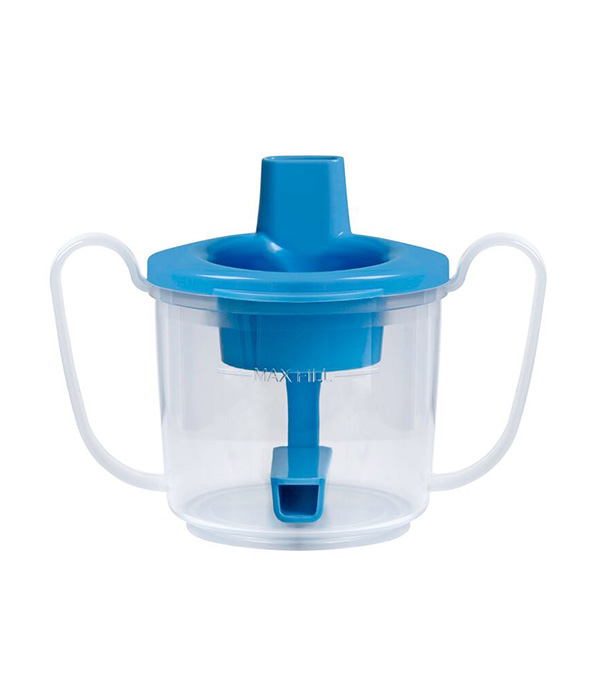Dysphagia Cups for IDDSI Levels: Choose For Each Thickened Drink Level
Updated June 2025
For those supporting individuals with swallowing difficulties, choosing the right cup isn’t just about convenience — it’s about safety, dignity, and compliance. Selecting the right Dysphagia cups for IDDSI levels depends largely on the drink being served.
In this article, we’ll explore which dysphagia cups are best suited for different IDDSI levels and offer guidance on how to make safe, informed choices for care settings.
Understanding the IDDSI Framework
Before selecting a cup, it’s essential to understand the International Dysphagia Diet Standardisation Initiative (IDDSI). This global framework classifies foods and fluids based on their thickness, from Level 0 (Thin liquids) to Level 4 (Pureed foods), and even up to Level 7 for regular, unmodified textures.
When it comes to drinks, Levels 0 to 4 are most relevant. Let’s break them down:
- Level 0 – Thin: Regular fluids like water, tea, or juice.
- Level 1 – Slightly Thick: May be slightly thicker than water but still flow easily.
- Level 2 – Mildly Thick: Pours quickly but requires slightly more effort to swallow.
- Level 3 – Moderately Thick: Often described as “honey-thick.” Needs controlled sips.
- Level 4 – Extremely Thick: Similar in texture to pudding or custard. Usually taken with a spoon.
Each of these levels may require a different type of cup to ensure safe and effective drinking. If you want specific advice from our partner’s at Able, click here to book a free assessment of your needs.
Dysphagia Cups: Tailored to Each Level
Let’s look at how specific dysphagia cup features align with the IDDSI drink levels.
Level 0–1: Thin to Slightly Thick
For these thinner liquids, the priority is spout control. The risk of aspiration is higher, so cups with a small spout or flow restrictor can help manage the volume delivered in each sip.
small spout or flow restrictor can help manage the volume delivered in each sip.
Best choices:
- Cups with a small aperture lid
- Flow-restricting spouts
- Options that allow for angled sipping, reducing the need to tilt the head
👉 Check out Able’s Drink-Rite Cup, ideal for thin to slightly thick liquids.
Level 2–3: Mildly to Moderately Thick
As liquids become thicker, users often benefit from cups that provide greater flow control and ergonomic grip. Many carers also look for graduated markings to monitor fluid intake.
Recommended features:
- Two-handled cups for a stable grip
- Angled lids to reduce neck extension
- Controlled flow spouts designed for honey-thick liquids
These cups also support a more independent drinking experience, which can improve confidence and dignity.
👉 Check out Able’s Feeder Beaker, ideal for thin to slightly thick liquids.
Level 4: Extremely Thick (Pureed)
These fluids are often best taken with a spoon, but some individuals may still prefer using a cup for small sips.
Suitable options:
- Open cups with narrow lips for careful sipping
- Spouted cups with very limited flow
- Cups compatible with thickened puree-style fluids
It’s essential to trial these with the individual and ensure clinical oversight is in place.
👉 Check out Able’s Wing Handled Beaker with optional lids.
Choosing with Safety in Mind
When selecting a dysphagia cup, keep these factors in mind:
- Clinical recommendations: Always consult a speech and language therapist (SLT) when introducing new drinking equipment.
- User ability: Can the individual hold and tip the cup? Do they need assistance?
- Cleaning and durability: In a care home setting, dishwasher-safe and durable materials are essential.
Some care settings opt to stock a variety of cups, ensuring there’s always an appropriate option for each resident and fluid type.
Supporting Safe Hydration in Care Homes
Hydration is a vital part of daily care, yet it becomes more complex when dysphagia is involved. The right cup not only reduces the risk of choking or aspiration but also encourages consistent fluid intake.
At HCSUK, we work with Able to supply a wide range of dysphagia cups suitable for every IDDSI level. Whether you’re looking for robust daily-use cups or specific designs for complex needs, the able team can help you find the safest and most practical solution.

-1.png?width=352&name=image001%20(3)-1.png)

